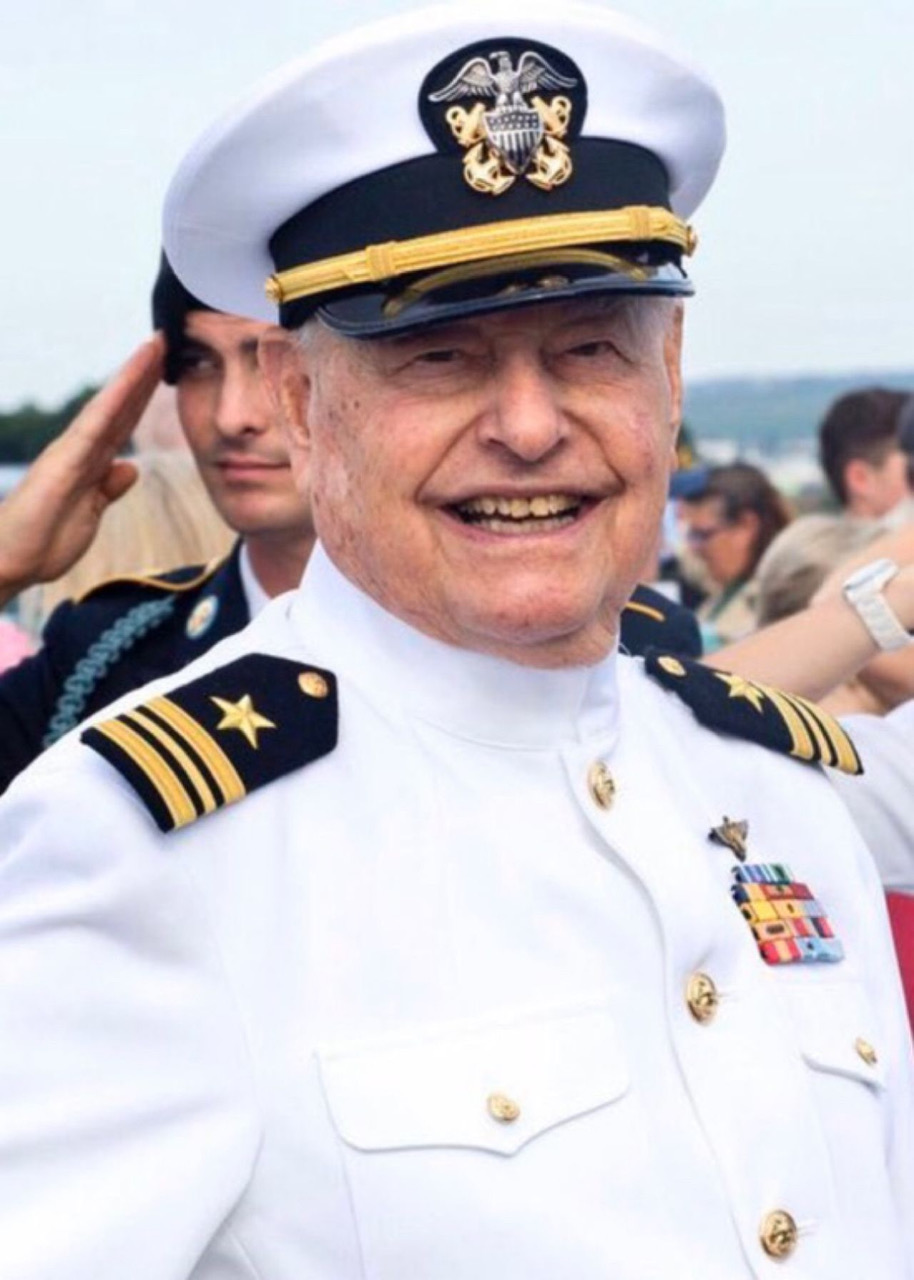Always Do Your Best at All Jobs: Lou Conter, the Last Living USS Arizona Survivor, and Retired Naval Intelligence Officer, Passes Away at 102


By Captain Steve Shepard, U.S. Navy (Retired)
Lou Conter passed away on 1 April 2024 in Grass Valley, California. He had been an eyewitness to key events during World War II, Korea, and Vietnam. From his enlistment in 1939 to retirement in 1967, he rose in the ranks from apprentice seaman to lieutenant commander. He stood the watch and persevered in our nation’s crises, giving all of us an example “to always do our best at all jobs” when our nation calls. He is one of many intelligence professionals who leaves us a rich legacy of service and model to follow.
Entering the Navy in 1939, he was assigned to the battleship USS Arizona (BB-39). He became a Navy quartermaster and served as Arizona's helmsman, steering the battleship through naval exercises and drills. Lou was the helmsman on the Arizona when she moored for the last time at Pearl Harbor on 5 Dec 1941. Two days later, he reported for watch just before the attack commenced. The ship went to general quarters, and Lou secured the quarterdeck and was on his way to the bridge when the ship fatally exploded, killing or wounding 1,177 sailors and Marines. Lou fought the fires and rescued crewman. He refused to be called a hero for his actions at Pearl Harbor and told interviewers: “The 2,403 men that died are the heroes. And we’ve got to honor them ahead of everybody else.”
Lou later went to flight school and became an enlisted pilot. He flew 200 Pacific combat missions with VP-11 in Catalina flying boats, operating primarily off New Guinea. During one mission, he was shot down and fought off sharks until the crew could be rescued. He received the Distinguished Flying Cross for helping rescue 219 Australian Coastwatchers from Japanese forces. He was later commissioned and transitioned to the Naval Reserves.
Recalled to duty for Korea, he was assigned as an air intelligence officer with the USS Bon Homme Richard (CV-31). In addition to his intelligence duties, he flew 29 combat missions in AD Skyraiders over North Korea.
Lou was later assigned to a team in 1962 that recommended the establishment of the Defense Intelligence Agency. During 1963, he was part of a Vietnam Assessment team that briefed President John F. Kennedy and advised him not to escalate U.S. involvement in the coming conflict. Lou also established the Navy’s first Survival Evasion Resistance and Escape (SERE) course and later the SERE courses at Brunswick, Maine and North Island, San Diego. One of the attendees was then Commander James Stockdale, who was subsequently shot down over North Vietnam and held for seven and half years. Stockdale later told Lou “Without that training, I would have never lived through my seven and a half years in a POW camp.” Lou retired in 1967 and went into a career in real estate.
Lou was one of our silent intelligence warriors who served his country humbly. His story reflects the many members of our community who experienced the evolution, successes, challenges, and shortfalls of Naval Intelligence in its 150-year history.
Lou’s health precluded several interview attempts. We had exchanged letters, and I sent him some of my military coins. In return, I was fortunate to receive an autographed copy of Lou's book The Lou Conter Story. In it, Lou inscribed to me “Always do your best at all jobs.” This is the testament of Lou's life and a charge to all those who serve our nation.
The Arizona crew is now once again complete in eternity as Lou has mustered with his fallen shipmates. We must never forget their sacrifice and keep America alert.
